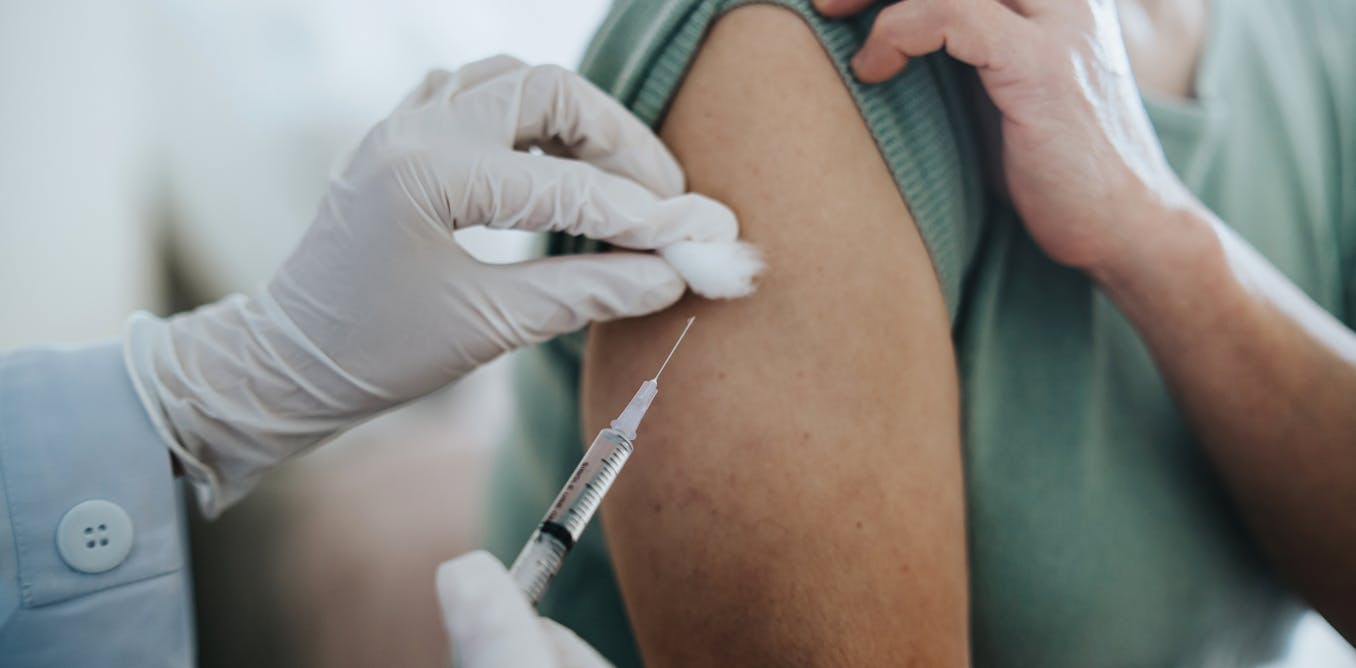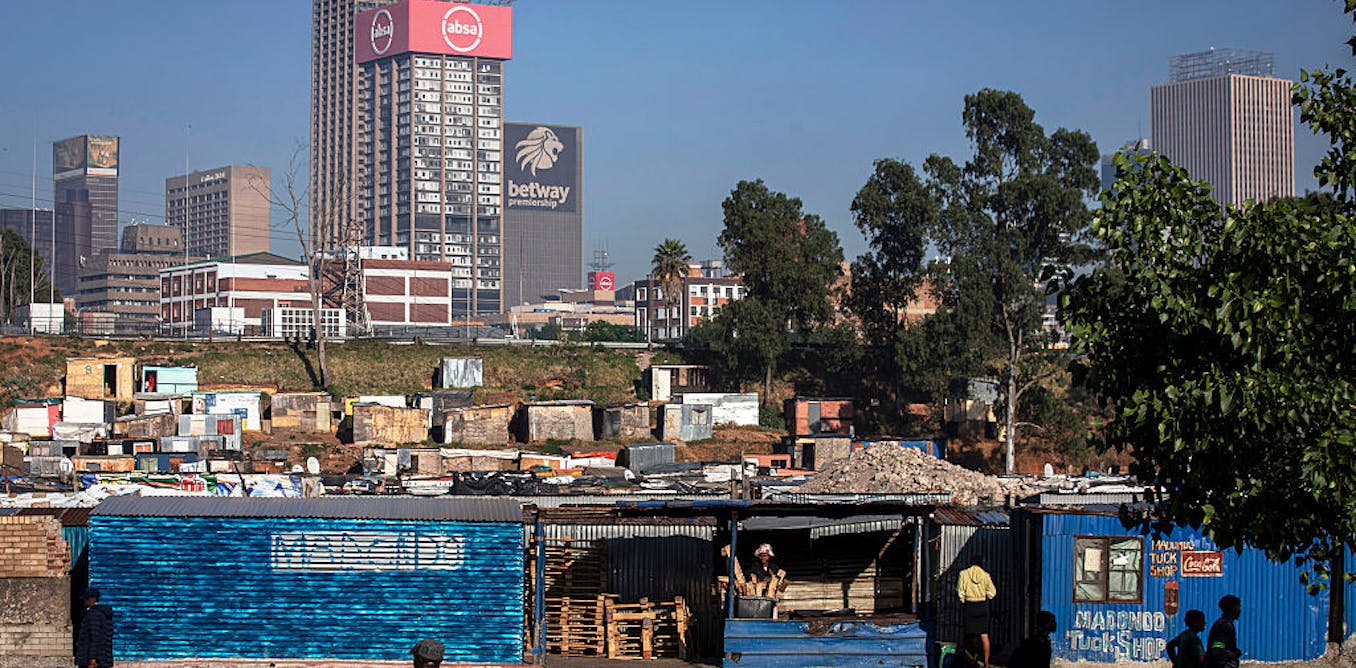What Happens When We Deny People Abortions? | Diana Greene Foster | TED
The TED talk “What Happens When We Deny People Abortions?” by Diana Greene Foster focuses on the results of a comprehensive study conducted by Foster and her team at the University of California, San Francisco. This study, known as the Turnaway Study, aimed to investigate the consequences of denying women access to abortions.
Foster begins her talk by sharing personal stories of her grandmothers’ experiences with unwanted pregnancies in the early 20th century, highlighting the challenges they faced due to illegal abortion and lack of support. She then delves into the common belief that abortion causes mental health harm, a perception that has been used to justify abortion restrictions. Supreme Court Justice Anthony Kennedy’s statement regarding the potential harm of abortion served as a catalyst for Foster’s research.
The Turnaway Study focused on two groups of women: those who received abortions and those who were turned away due to being too far along in their pregnancies. The research followed almost a thousand women over a period of five years, collecting data on their physical health, mental health, socioeconomic well-being, and life aspirations.
The findings from the study challenged the assumption that abortion causes mental health harm. Foster and her team observed that there were no negative mental health outcomes associated with abortion. However, they did find that women who were denied abortions experienced higher levels of anxiety, lower self-esteem, and reduced life satisfaction. Furthermore, these women faced worse physical health, socioeconomic challenges, and struggled to achieve their life aspirations.
Foster highlights the importance of access to safe, legal abortion as a fundamental aspect of supporting the well-being of families and individuals. She emphasizes the need for less punitive and more generous support for pregnant individuals, regardless of their decision to carry the pregnancy to term or seek an abortion. The talk concludes with Foster advocating for more liberal abortion laws and comprehensive support for pregnant individuals, both in the United States and globally.
Watch the video by TED
I’d like to start by telling you the story of two women born early in the 20th century. They lived on different coasts, they had different religious backgrounds and they were in different stages of life when each experienced an unwanted pregnancy. Sally was newly married at the start of the Great Depression.
She and her husband decided they couldn’t afford to start a family yet, but abortion was illegal in New York City, and so she traveled to Puerto Rico to get an illegal abortion. Dorothy had recently graduated from high school when she became pregnant by a much older golf instructor. Her conservative parents shunned her
And she had to go away to a Salvation Army home for unwed mothers, where she gave birth and placed the child for adoption. These women were my grandmothers, and they’re part of the reason I became a demographer and professor studying the causes and consequences of unintended pregnancy.
For years, people have alleged that abortion harms women. The idea that abortion causes mental health harm in particular has been used to justify laws that ban abortion or try and dissuade people from choosing it. This came to a head in 2007, when Supreme Court Justice Anthony Kennedy allowed restrictions on abortion to stand
Because, as he said, “While we find no reliable data to measure the phenomenon, it seems unexceptionable to conclude that some women come to regret their choice to abort the infant life they once created and sustained. Severe depression and loss of esteem can follow.” “No reliable data”? Those are words a demographer lives for. We began data collection the very next year. To study the outcomes for people who get abortions, you need a comparison group, ideally people who want an abortion and can’t get them, because they would be in exactly the same circumstances, but one group gets the abortion and the other group doesn’t. My research team at the University of California, San Francisco,
Went to 30 abortion facilities across the country, each one selected because it was distant enough from other clinics that if someone were too far along in pregnancy for that clinic, there was very few other places they could go. At each site, we focused on recruiting two groups of people,
Women who were just under the limit and got their abortions, and women who showed up a little bit too late in pregnancy and were turned away. I called it the Turnaway Study, and the study design was a success. In analyzing the data, we see those two groups were the same at the start.
Women who received and women who were denied abortions had similar mental health, physical health and socioeconomic well-being at the time they sought an abortion. We followed almost a thousand women, calling them every six months for five years, using scientifically validated questions to measure their physical health, their mental health and their families’ well-being.
And we can see that although they started the same, those two groups, their lives diverged in ways that could be directly attributed to whether they got their abortion or were turned away. And it didn’t work out the way that Kennedy had “unexceptionably” concluded. In fact, we found no mental health harm from abortion. Instead, we saw higher anxiety, lower self-esteem, lower life satisfaction for the people who were denied the abortion. But this difference didn’t last. Over time, the two groups looked the same, not because both groups were doing poorly in terms of mental health.
In fact, symptoms of depression and anxiety improved for both groups over time. But the two groups diverged in other important ways. We find worse physical health for women who carried the pregnancy to term and gave birth. Consistent with the vast medical literature, we see that childbirth is associated with greater risks than abortion,
Including hemorrhage, eclampsia, and even death. And the differences in physical health don’t end at the time of childbirth. For years later, we saw higher chronic pain, more hypertension and overall worse physical health for women who were denied the abortion and gave birth. We also find large socioeconomic differences,
Where women who are denied abortions face more hardships than women who receive abortions. We find an increase in public assistance, but it’s not enough to make up for a loss of full-time employment. Women, often raising children alone, end up falling below the federal poverty level. Working with economists,
I was able to show that those who received and those who were denied abortions were similar economically for years before the year of the unwanted pregnancy, but for years after, we see more debt, lower credit scores and a greater chance of eviction and bankruptcy for people who were turned away.
And one other area of difference I’ll mention. We see differences in the chance that women set and achieve aspirational plans for their future. This includes things like breaking ties with abusive partners, finding high quality romantic relationships, getting advanced educational degrees, financially supporting their older children
And even differences in the chance of having an intended pregnancy later. The results of my study consistently show that when there is a difference, those who were able to get their wanted abortion did better than those who weren’t. This may come as a surprise to people
Who don’t think about why women get abortions. Women often give many reasons: housing and financial circumstances, their relationship with the man involved in the pregnancy, their need to take care of existing children. More than half of those seeking abortions nationally are already parenting at least one child.
All of the areas women were concerned about — finances, children, relationships, life aspirations — were the areas in which we see differences. In the experiences of those denied abortions, we see all their concerns playing out exactly as they anticipated when they were deciding whether to have an abortion. Their concerns were justified.
Over the five years we followed them, we see that over 95 percent of those who received their abortion said it was the right decision for them. Very few of those people who gave birth decided to place a child for adoption. Less than 10 percent. So there’s another example
Of a Supreme Court justice making an assumption that turned out to be wrong. You may remember Amy Coney Barrett, in deliberating on ending 50 years of abortion rights in our country, suggested that women could drop their babies off at fire stations. We find that once people have taken the risk
And made the monumental sacrifice of giving birth to a child, most people decide to parent that child. Adoption is not an easy choice. And in fact, the women who placed children for adoption were the most likely to say that they were having difficulty coping with their experience.
It’s not news to me that some people think abortion is wrong, but when someone’s in the circumstance where they are pregnant and they cannot support a child and take care of their existing children or make a decent life for themself, they’re trying to make a decision
That is right for their life and their family. As the abortion provider Dr. George Tiller used to say before his murder in 2009: Trust women. Access to safe, legal abortion is important for all of us. Unintended pregnancy is very common in my family, in all of our families, across our country, in red states and blue states, and across the globe. I’ve worked with scientists in Tunisia, Colombia, South Africa, Bangladesh and Nepal
To study the experiences of people who are pregnant when they aren’t ready. And we see these same concerns about wanting to have children under the right circumstances. Access to abortion is universally, fundamentally important to the well-being of families. The overwhelming international trend is towards liberalizing abortion laws and not, like the United States, of imposing new restrictions. Until the United States rejoins the rest of the world, there is a lot we can do to support pregnant people, whether they do or do not want to carry that pregnancy to term.
We need much more generous and less punitive supports for low-income families, like income supports, extended periods of health care coverage, child care and parental leave, so nobody decides to end an otherwise wanted pregnancy for economic reasons alone. But when someone’s in the position where they don’t have the circumstances
Where they want to raise a child and they want to end their pregnancy, they need the information and resources to do so safely. Since the 2022 Supreme Court Dobbs decision that overturned Roe and ended federal protections for abortion rights, we see that people who are experiencing an unwanted pregnancy are determined.
People have strong motivation because they understand the consequences of carrying an unwanted pregnancy to term. People who have the resources to circumvent their state law by traveling or ordering medication abortion pills online, do. Now with large swaths of the Southern United States and Midwest without a single legal abortion clinic,
Women who can travel hundreds of miles to get an abortion out of state. People without the emotional and financial and social resources to travel — that includes minors and immigrants and people whose travel is restricted because of their own health or the law —
Will experience all the hardships we’ve documented in the Turnaway Study. The importance of control over childbearing is also shown in the stories of my grandmothers. My father’s mother, Sally, got her abortion in Puerto Rico and went on with her life, which included having three children later, when her financial footing was more secure.
She was warm and funny and a wonderful mom. My — My other grandmother, who gave birth, she experienced severe complications from childbirth, both physical and emotional. After placing my mother for adoption, she struggled to find strong romantic relationships and she never did get to have more children, although she desperately wanted to. My mother found her when I was 12,
And she and I became very close. She was my nearest relative when I went off to college at UC Berkeley and she even came to visit me when I was in graduate school at Princeton. And I was the one by her side, holding her hand, when she died many years later. What I think about her experience is that her life took a detour when she got pregnant as a teenager and she never found a way to get back on the track she wanted. The experiences of my grandmothers are consistent with the Turnaway Study,
And also show us what to expect in this post-Dobbs world. What we know is that being able to make one’s own decision about childbearing without government interference is crucial for the economic well-being of families and allows people to pursue personal and educational goals, including having wanted children later.
Access to abortion is about control over one’s body, life and destiny. Thank you.
About TED
The TED Talks channel features the best talks and performances from the TED Conference, where the world’s leading thinkers and doers give the talk of their lives in 18 minutes (or less). Look for talks on Technology, Entertainment and Design — plus science, business, global issues, the arts and more. You’re welcome to link to or embed these videos, forward them to others and share these ideas with people you know.
Video “What Happens When We Deny People Abortions? | Diana Greene Foster | TED” was uploaded on 01/12/2024 to Youtube Channel TED


































